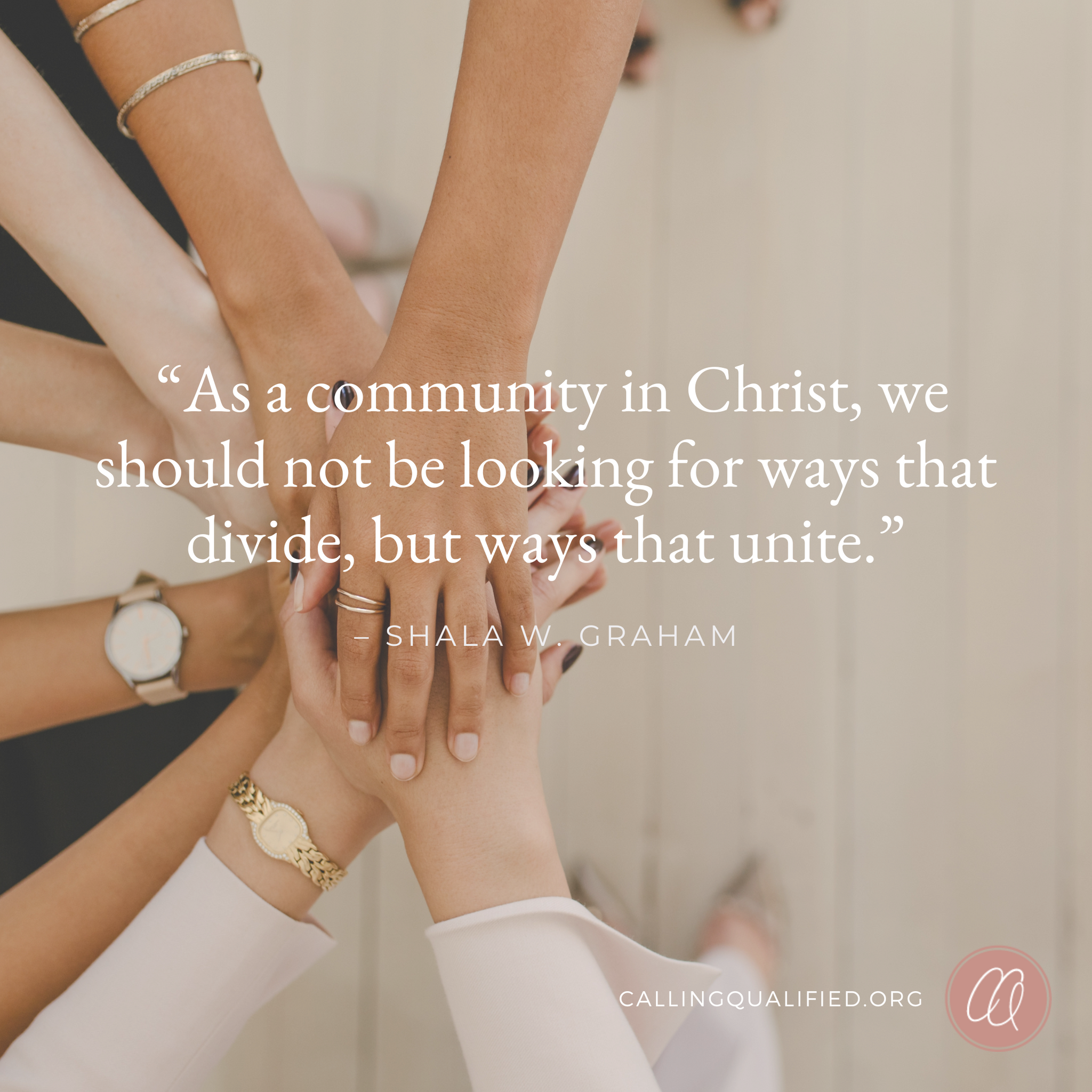We Rise and Fall Together
“He also told this parable to some who trusted in themselves that they were righteous and regarded others with contempt.”
If you've heard me preach before, you'll likely know that I grew up with three brothers. And because my mom didn't always like us playing with the kids in our neighborhood, sometimes we had to be our own, complete community. We were the Wilsons.
My brothers are my day ones, my aces, and standing arm in arm with them is still my happy and safe space. I feel invincible when I stand with my brothers. It is pure, and never-ending love.
As kids, we all shared the same bedroom. After our parents put us down to sleep, they would pop in the day's VHS recording of their "programs," better known as Young and the Restless and Bold and the Beautiful, which my mother now streams on the Paramount app.
Now when our father told us to go to sleep, he was clear that he didn't want to hear a peep out of our community. And if someone was making a noise, then we all were getting in trouble.
The Wilson community would rise and fall together.
That's some next level accountability.
Now of course, my big brother Eddie was sort of a class clown as a middle schooler and my little brother was his captive audience. Eddie would be silently making all these jokes, acting a fool, and my oldest brother and I could keep our composure. But Sean, Sean he just cackled uncontrollably like any 7 year old would.
Which meant daddy was now calling us out of our room to line up in the hallway to make atonement for the sins of our community.
As we dive into today's devotion, I want to talk about rising and falling as a community as we look at Jesus' Parable of the Pharisee and the Tax Collector.
This is what Luke 18:9-14 records:
He also told this parable to some who trusted in themselves that they were righteous and regarded others with contempt:
"Two men went up to the temple to pray, one a Pharisee and the other a tax collector. The Pharisee, standing by himself, was praying thus, 'God, I thank you that I am not like other people: thieves, rogues, adulterers, or even like this tax collector.
I fast twice a week; I give a tenth of all my income.' But the tax collector, standing far off, would not even look up to heaven, but was beating his breast and saying, 'God, be merciful to me, a sinner!' I tell you, this man went down to his home justified rather than the other; for all who exalt themselves will be humbled, but all who humble themselves will be exalted."
It's easy to look at these two men praying and think the Pharisee is a total turd, someone we would never want to be like, and have so much compassion for the tax collector.
If we're honest with ourselves, we've prayed like the Pharisee and the tax collector depending on how we are doing that day.
In The Gospel According to Luke, James Edwards noted that the Pharisee's prayer looked really similar to the prayer in Psalm 26. And the tax collector's prayer looked really similar to Psalm 51.
I encourage you to read both of these Psalms to get the full effect, but to give you a glimpse, Psalm 26 starts like this, "Vindicate me, O Lord, for I have walked in my integrity, and I have trusted in the Lord without wavering. Prove me, O Lord, and try me; test my heart and mind."
While Psalm 51 goes more like this, "Have mercy on me, O God, according to Your steadfast love; according to Your abundant mercy blot out my transgressions. Wash me thoroughly from my iniquity, and cleanse me from my sin. For I know my transgressions, and my sin is ever before me."
We've had both of those kinds of prayers. The "Lord, I'm a hot mess. A true wretch. I totally fell off the bandwagon. Have mercy on me, Your unworthy servant," and the "Lord, I have been serving You day after day and year and year. I have been faithful to walk in the way of Christ. So I need You to show up for me, Your diligent servant."
What I find interesting and comforting is that David wrote both of these prayers. And if both of these prayers can come forth from the same person known as a man after God's own heart, then perhaps the Pharisee and the Tax Collector could be more alike than we think.
Now that we have adjusted our own posture, seeing that we can identify with both the Pharisee and the tax collector, let's dive in.
Who is Jesus telling this parable to? Luke 18:9 opens with the answer, "So he said to them, "You are those who justify yourselves in the sight of others; but God knows your hearts; for what is prized by human beings is an abomination in the sight of God."
He was telling a parable to some who trusted in themselves that they were righteous and regarded others with contempt. Jesus was continually trying to pull us out of trusting in ourselves so that we could put our trust in him. And like Him, He wanted us to look to our neighbors, our community, with compassion and solidarity, not with contempt or division.
“True righteousness is a matter of confidence in God rather than self (Isa 8:17; 2 Cor 1:9; Heb 2:13), but the gifts of grace in the life of a believer easily tempt one to an attitude of superiority rather than humility and gratitude. This parable is about that temptation.” – James Edwards
We can be tempted by the grace we have been freely given to have an "attitude of superiority" instead of maintaining a posture of “humility and gratitude.”
Jesus closes the parable with this moral, "for all who exalt themselves will be humbled, but all who humble themselves will be exalted."
Amy Jill Levine talks about how Judaism practiced communal prayers, as in our Father, our sins. They prayed, rejoiced, and lamented as a community.
We can look to Jesus for our understanding of this community. Jesus hung on the cross to make atonement for the people. He said, "Father forgive them, for they know not what they do." He stood in the gap for the community. Jesus fell with the community, and the community still rises with Jesus!
Like the Wilson kids, the Pharisee and the tax collector were a part of the same community. They were both Israelites offered the same covenant by the Father, given to the whole people.
We, as a larger faith-community, too often pit ourselves against those who we should be united with. We often do that based on our own sense of righteousness, as we align with various faith traditions, theological positions, or political parties. But we're all image bearers of God in the same spiritual family.
Prayer Starter
Father, we lament and make atonement as a community, on behalf of the community, taking responsibility for what we have and haven't done to build community. We commit to looking not for ways that divide, but ways that unite. In Jesus’ Name, Amen.
Dig Deeper
James 4:10, “Humble yourselves before the Lord, and he will lift you up.” (NIV)
Reflections
Can you think of a time when you have prayed like the Pharisee, and like the tax collector? In what ways can you build community around the things that unite us in faith? How would our witness as followers of Christ change if we delve into a habit of lamenting and atoning as a community?
We’d love to hear from you! Share your thoughts in the comments.

